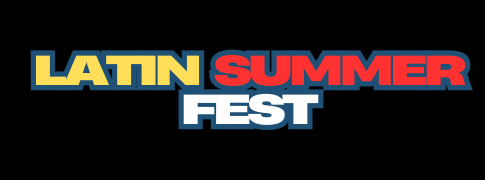GENERAL
Unveiling the 322 Messianic Prophecies: A Deep Dive

Unveiling the 322 Messianic Prophecies: A Deep Dive
The concept of the Messiah has been central to Jewish, Christian, and even some Islamic traditions for centuries. Across various sacred texts, there are numerous prophecies that describe the coming of a figure, the Messiah, who would bring salvation, peace, and fulfillment of God’s promises. While some of these prophecies are well-known, others are less familiar. However, together, they form a substantial body of biblical prophecy, often cited as the “322 Messianic Prophecies.”
In this article, we will take a deep dive into these prophecies, exploring what they are, their significance, and how they have been interpreted in both Jewish and Christian traditions. Let’s unveil the mystery behind the 322 Messianic prophecies.
What Are the 322 Messianic Prophecies?
Messianic prophecies are passages within the Hebrew Bible (the Old Testament in Christianity) that are believed to foretell the coming of the Messiah, the anointed one, who would fulfill God’s promises. Over time, these prophecies have been viewed through different theological lenses—especially within Judaism and Christianity.
The number “322” refers to the total number of prophecies believed by some scholars to foretell the Messiah’s arrival. This number, while not universally agreed upon, often includes references from books like the Psalms, Isaiah, Daniel, and Micah, among others.
Messianic Prophecies in Judaism
In Judaism, the Messiah is anticipated to be a human leader, descended from King David, who will bring peace, rebuild the Holy Temple in Jerusalem, and unite the Jewish people. Traditional Jewish scholars have long debated the exact nature of the Messiah and how specific prophecies point to his arrival. Some of the most famous prophecies include:
- Isaiah 11:1-10: This passage speaks of a righteous leader who will emerge from the line of David. The Messiah will bring peace and justice, with a future world where nations live harmoniously.
- Jeremiah 23:5-6: This prophecy describes a king from David’s line who will reign wisely, bringing salvation and security to Israel.
- Micah 5:2: This verse speaks of a ruler who will come from Bethlehem and whose origins are ancient, hinting at the Messiah’s divine nature.
For Jews, the coming of the Messiah is still a future event, and the 322 Messianic prophecies are seen as markers of the expected time.
Messianic Prophecies in Christianity
Christianity interprets these prophecies differently. Christians believe that Jesus of Nazareth fulfilled the Messianic prophecies, seeing him as the Messiah prophesied in the Old Testament. Many Christians claim that Jesus’ life, death, and resurrection were the fulfillment of these ancient predictions. Some key prophecies cited by Christians include:
- Isaiah 53: A suffering servant who will bear the sins of the people and be wounded for their transgressions.
- Psalm 22: This psalm is often associated with Jesus’ crucifixion, with its references to suffering, being mocked, and having hands and feet pierced.
- Micah 5:2: Christians believe this prophecy points to Jesus being born in Bethlehem, fulfilling the Messiah’s birthplace.
The “322 Messianic Prophecies” in Christianity highlight how Jesus’ life and mission fulfill a wide array of predictions scattered throughout the Old Testament. These prophecies touch on his birthplace, lineage, nature, and purpose.
Key Categories of the 322 Messianic Prophecies
While the 322 Messianic prophecies vary in their specifics, they can generally be categorized into several key areas:
1. Genealogical Prophecies
Many of the Messianic prophecies emphasize the genealogy of the Messiah, particularly his descent from the line of King David. These prophecies point to the Messiah’s royal lineage and his legitimacy as a ruler over Israel. Some examples include:
- Isaiah 11:1: “A shoot will come up from the stump of Jesse; from his roots, a Branch will bear fruit.” This suggests the Messiah’s descent from David, who was the son of Jesse.
- Jeremiah 23:5: “The days are coming,” declares the Lord, “when I will raise up for David a righteous Branch, a King who will reign wisely.”
2. Birth and Childhood of the Messiah
The birth of the Messiah is another central theme in Messianic prophecies. These prophecies not only describe where and how the Messiah would be born but also hint at miraculous or divine aspects of his birth. Key examples include:
- Micah 5:2: “But you, Bethlehem, Ephrathah, though you are small among the clans of Judah, out of you will come for me one who will be ruler over Israel.”
- Isaiah 7:14: “The virgin will conceive and give birth to a son, and will call him Immanuel.” This passage is often cited in Christian interpretations, referring to the miraculous conception of Jesus.
3. Ministry and Miracles of the Messiah
The prophecies also focus on the Messiah’s ministry and the miracles he would perform. The coming Messiah was expected to heal the sick, restore sight to the blind, and preach righteousness. Examples of these prophecies include:
- Isaiah 35:5-6: “Then will the eyes of the blind be opened and the ears of the deaf unstopped. Then will the lame leap like a deer, and the mute tongue shout for joy.”
- Isaiah 61:1-2: “The Spirit of the Lord is upon me, because the Lord has anointed me to proclaim good news to the poor.”
4. Suffering and Sacrifice
One of the most distinctive elements of Christian Messianic interpretation is the suffering and sacrifice of the Messiah. Several Old Testament prophecies foreshadow a Messiah who would endure pain and suffering for the salvation of the people. For example:
- Isaiah 53:3-5: “He was despised and rejected by mankind, a man of suffering, and familiar with pain… He took up our pain and bore our suffering.”
- Psalm 22: This psalm vividly describes the suffering of the Messiah, with references to being mocked, pierced, and abandoned, which many Christians associate with the crucifixion of Jesus.
5. The Reign of the Messiah
Many Messianic prophecies describe the reign of the Messiah as one of peace, justice, and divine authority. This reign would be eternal and would bring an end to war, violence, and oppression. Notable examples include:
- Isaiah 9:6-7: “For to us a child is born, to us a son is given, and the government will be on his shoulders. And he will be called Wonderful Counselor, Mighty God, Everlasting Father, Prince of Peace.”
- Daniel 7:13-14: “In my vision at night I looked, and there before me was one like a son of man, coming with the clouds of heaven… His dominion is an everlasting dominion that will not pass away.”
6. The Second Coming
Finally, many prophecies point to the future, when the Messiah will return in glory to fully establish God’s kingdom on earth. This second coming is a critical part of Christian theology, where the Messiah’s return will usher in the final judgment and eternal peace. Examples include:
- Zechariah 14:4: “On that day his feet will stand on the Mount of Olives, east of Jerusalem.”
- Revelation 19:11-16: “I saw heaven standing open and there before me was a white horse, whose rider is called Faithful and True.”
Conclusion: The 322 Messianic Prophecies in Context
The 322 Messianic prophecies represent a vast and intricate tapestry woven through centuries of biblical texts. These prophecies lay the foundation for a future figure who will bring salvation, peace, and divine fulfillment. For Jews, the Messiah is still awaited, while for Christians, the fulfillment is believed to have occurred through Jesus Christ.
Whether one approaches these prophecies from a Jewish or Christian perspective, the significance of these ancient words cannot be overstated. They continue to shape religious thought, inform theological discussions, and inspire faith around the world. Ultimately, the 322 Messianic prophecies offer a glimpse into the hope for a future transformed by the coming of the Messiah.
GENERAL
Why Anon Vailt Is a Top Privacy-Focused Vault

Anon Vailt is an innovative platform designed for anonymous cloud storage and secure file backups. Unlike traditional cloud services, it emphasizes zero-knowledge storage, meaning the provider doesn’t have access to your encryption keys or data content. This approach ensures data privacy protection for individuals, freelancers, and businesses handling sensitive documents.
At its core, Anon Vailt positions itself as more than just a file repository. It’s a secure online vault that combines strong encryption, user-friendly design, and features tailored to 2025’s security standards.
Key Features of Anon Vailt
When evaluating any cloud platform, understanding its features is critical. Here’s what users can expect from anon vailt app features:
Encrypted File Vault
All files are encrypted before leaving your device, ensuring that no third party—including the platform—can access your content. This level of protection is crucial for personal documents, legal files, and sensitive work materials.
Secure File Storage
With secure file storage, users can upload, organize, and manage files with confidence. Multi-layer authentication and robust encryption standards are built into the platform.
Zero-Knowledge Storage
Anon Vailt uses a zero-knowledge storage model, meaning even if the servers were compromised, your files remain unreadable without your private keys.
Cyber Security Storage Tools
Advanced tools monitor file integrity, detect suspicious login attempts, and alert users to potential threats. For those who prioritize cyber security storage tools, this is a notable advantage over conventional cloud providers.
Anonymous Cloud Storage Access
You can access your files without linking personal identifiers, allowing for anonymous cloud storage experiences that protect your digital footprint.
How to Use Anon Vailt
Using the platform is straightforward, yet robust:
Anon Vailt Login – Sign up using a unique username and strong password. No personal email is required.
File Upload – Drag and drop files into the secure online vault. All files are automatically encrypted.
Organization – Categorize files, set permissions, or create folders.
Sharing – If needed, generate secure links without exposing your identity.
Backup – Use secure file backup features to ensure redundancy.
It’s a mix of convenience and security — ideal for both personal use and professional environments where privacy is non-negotiable.
Anon Vailt Review: Pros and Cons
A detailed anon vailt review must balance usability with risk awareness.
Pros
- Strong encryption and data privacy protection
- Anonymous account creation and access
- Easy-to-use interface with intuitive anon vailt app features
- Encrypted storage solutions compatible across devices
- Safe secure file backup options for critical documents
Cons
- Free tier may have limited storage
- Advanced features require subscription
- No native collaboration tools for teams (as of 2025)
A user comment from a privacy forum highlights the value:
“Anon Vailt gave me peace of mind — my sensitive documents feel safer here than anywhere else.”
Why Anon Vailt is a Leading Privacy-Focused Cloud Vault
The platform’s popularity stems from its combination of cloud privacy software and modern security protocols:
- AES-256 encryption on all files
- Optional two-factor authentication for anon vailt login
- No metadata retention
- Cross-platform access: desktop, mobile, and web
Users seeking the safest way to store personal or professional files often rank Anon Vailt above conventional cloud platforms for encrypted file vault needs.
Security Practices for Anon Vailt Users
Even with a secure platform, best practices matter:
- Strong, unique passwords – Avoid reusing credentials
- Two-factor authentication – Adds an extra layer of security
- Regular updates – Keep your devices secure
- Cautious sharing – Only share links with trusted parties
Implementing these practices maximizes the benefits of secure online vaults.
Comparing Anon Vailt to Other Cloud Storage Options
While traditional services like Google Drive and Dropbox are convenient, they often lack:
- True anonymity
- End-to-end encryption by default
- Zero-knowledge storage
It fills this gap, making it a privacy-focused cloud vault choice for anyone serious about data privacy protection.
Anon Vailt App Features in 2025
The latest iteration of the app emphasizes usability:
- File preview without download
- Drag-and-drop folder organization
- Mobile push notifications for file activity
- Encrypted offline storage for on-the-go access
- Seamless secure file backup integration
This ensures users don’t sacrifice convenience for security.
Best Practices for Safe Usage
Even with strong encrypted storage solutions, user behavior is critical:
Avoid logging in from public networks
Regularly update your cloud privacy software
Monitor activity logs
Keep personal identifiers separate from account info
Following these steps ensures the encrypted file vault remains truly secure.
Real-Life User Example
One cybersecurity enthusiast shared:
“I moved all my client files to Anon Vailt last year. Between the zero-knowledge encryption and anonymous login, I feel confident sharing sensitive info.”
This reflects the growing trend toward privacy-first cloud solutions.
FAQ’s
Is Anon Vailt really anonymous?
Yes, the platform allows account creation without personal identifiers, maintaining privacy for users who prefer anonymity.
How secure is Anon Vailt for sensitive files?
With AES-256 encryption and zero-knowledge storage, your files are highly secure even if servers are compromised.
Can I use Anon Vailt for business documents?
Absolutely. While collaboration tools are limited, the platform is ideal for storing confidential business documents safely.
Are there alternatives to Anon Vailt?
Yes, other privacy-focused cloud vaults and encrypted storage solutions exist, but few combine usability with strong anonymity like Anon Vailt.
Conclusion
Anon Vailt is more than just a cloud storage service — it’s a secure, anonymous, and privacy-focused vault designed for today’s digital challenges. For individuals and professionals prioritizing confidentiality, it offers unmatched peace of mind.
GENERAL
How Modern Construction Techniques Are Changing the Way We Build

As the construction industry ushers in a new era, breakthrough techniques and technologies are transforming both residential and commercial projects. The result is a built environment that is more efficient, adaptable, and eco-friendly than ever before. Homeowners and developers eager to capitalize on these advancements can work with trusted Fort Mill remodelers who blend local expertise with state-of-the-art methods to deliver stunning, future-ready spaces. Modern construction practices prioritize performance, longevity, and sustainability, moving beyond traditional building methods. Both the residential and commercial sectors are embracing interconnected data, advanced machinery, and intelligent materials to optimize results and minimize environmental impact. Innovations like modular construction and adaptive reuse not only reduce costs but also transform urban landscapes. These trends reflect the industry’s evolution in response to the needs of contemporary living and its ability to adapt to changing demands.
Building Information Modeling (BIM) Enhancements
Building Information Modeling has evolved from a simple drafting tool into a sophisticated data-centric platform. The latest systems, often referred to as 5D BIM, combine detailed design with cost analysis, scheduling, and real-time construction updates. This holistic approach enables project managers to generate “digital twins”—highly detailed virtual replicas of buildings that allow for instant conflict detection and performance optimization. Home builders and commercial developers benefit from enhanced coordination and fewer surprises on the jobsite, driving efficiency even on complex, multi-phase projects.

Drones and Augmented Reality (AR) Integration
Surveying and site inspections are rapidly moving into the digital age through the adoption of drones equipped with AI and advanced sensors. These airborne tools provide 3D site scans that are incredibly fast and accurate, improving documentation and streamlining regulatory compliance. Augmented Reality tools then overlay project models onto real-world environments, enabling seamless collaboration among architects, builders, and clients and minimizing the risk of design flaws or costly revisions during construction.
Robotics and Automation in Construction
Automation and robotics have shifted from factory conveyor belts directly to the construction site. Today’s robots can perform repetitive, high-precision jobs such as masonry, rebar tying, and onsite fabrication. This not only enhances safety—by reducing human exposure to hazardous environments—but also delivers consistently high-quality work while accelerating project timelines. Automated processes for cutting and preparing building materials directly from digital plans are further reducing waste and keeping projects on schedule.
Generative AI for Design and Planning
Generative AI in construction is enabling professionals to refine designs and ensure code compliance with unprecedented efficiency. By automating complex calculations and layout creation, these tools empower teams to explore a vast array of design options, identifying the optimal use of space and resources for both homes and commercial developments. As accessibility improves, generative AI is expected to become standard practice, especially for urban infill and high-performance buildings where precision is paramount.
Sustainable Materials and Systems
Eco-friendly construction is no longer an exception—it’s quickly becoming the rule. Smart materials such as self-healing concrete actively extend the lifespan of structures. At the same time, low-emission paints and energy-generating solar panels contribute to health and cost savings in residential settings. In the commercial sphere, advanced IoT-based energy management systems monitor usage, drastically reducing unnecessary consumption and cutting operational incidents by more than 50%.
Modular and Prefabricated Construction
Off-site construction is rewriting the rules, offering a sustainable, highly controlled building process. Prefabricated modules are custom-built in workshops before being assembled at the construction site. This method accelerates timelines, ensures tighter quality control, and minimizes the logistics challenges and community disruptions often associated with traditional builds. Additionally, modular construction is driving affordability and diversity in housing and commercial solutions.
Adaptive Reuse and Mixed-Use Developments
Adaptive reuse represents a powerful form of urban renewal, transforming obsolete or historic structures into vibrant spaces for modern living, retail, or culture. Such projects extend the lifespan of buildings with significant cultural value while reducing demolition waste and preserving their architectural character. Similarly, emerging mixed-use developments combine residential, commercial, and community amenities in walkable, human-centered districts that promote economic vitality and social connection.
Conclusion
The construction sector is experiencing an era of remarkable innovation, driven by digital advancements, intelligent automation, and sustainable practices. By leveraging these techniques, builders and property owners are not simply keeping pace with contemporary needs—they are creating adaptable and enduring spaces that set new standards for the industry’s future.
GENERAL
Top Drain Cleaner Toronto Services You Can Trust

A professional drain cleaner Toronto uses advanced tools such as drain snakes, high-pressure jetters, and camera inspection systems to identify and eliminate the root cause of the problem. Whether it’s grease buildup, tree roots, or foreign debris, trained technicians don’t just treat the symptom — they fix the source.
Understanding Drain Cleaning Toronto Services
The Basics of Sewer & Drain Cleaning Toronto ON
Toronto’s plumbing infrastructure connects thousands of homes and businesses to a vast municipal sewer system. Over time, grease, dirt, and sediment accumulate, restricting water flow. Sewer & drain cleaning Toronto ON professionals use specialized equipment to clear these obstructions without damaging your pipes.
Typical services include:
- Main line cleaning to remove buildup in the primary sewer connection.
- Kitchen and bathroom drain unclogging to clear hair, grease, and food particles.
- Storm drain cleaning to prevent flooding during heavy rainfall.
- Preventive maintenance programs for long-term performance.
Signs You Need a Clogged Drain Toronto Plumber
Sometimes a clog develops slowly, giving you subtle warnings before a full backup occurs. If you notice any of these signs, it’s time to call a clogged drain Toronto plumber:
- Gurgling sounds when using sinks or tubs.
- Water pooling around drains or toilets.
- Unpleasant odors coming from pipes.
- Slow-draining sinks or bathtubs.
- Backflow from toilets or floor drains.
These symptoms often indicate a developing blockage in your drain or main sewer line that requires immediate professional attention.
Hydro-Jetting Drain Cleaning Toronto: The 2025 Standard
For stubborn or recurring blockages, hydro-jetting drain cleaning Toronto has become the gold standard. This eco-friendly method uses high-pressure water jets (up to 4,000 PSI) to blast through grease, roots, and mineral buildup. It’s powerful enough to clean the inside of pipes thoroughly, leaving them almost like new.
Benefits of hydro-jetting include:
- Non-invasive and chemical-free.
- Ideal for both residential and commercial drains.
- Effective against grease, sludge, and root intrusion.
- Prevents future clogs with deep cleaning.
Toronto homeowners love hydro-jetting because it’s both safe and sustainable — no harsh chemicals, just water pressure doing the hard work.
When You Need an Emergency Drain Cleaner Toronto GTA
Clogs don’t care about your schedule. Late-night backups, overflowing toilets, or basement floods require immediate response. That’s where an emergency drain cleaner Toronto GTA comes in.
Emergency technicians are available 24/7 to handle crises such as:
- Sewer backups during storms.
- Overflowing drains in multi-unit buildings.
- Burst or frozen drain lines in winter.
A homeowner once shared, “I woke up to water in my basement at 2 AM, but a local Toronto drain cleaner arrived within 30 minutes. They cleared a tree root blockage before it got worse — absolute lifesaver!”
That’s the kind of reliability that separates professionals from amateurs.
Kitchen Drain Unclog Toronto: The Heart of Home Maintenance
Kitchens are often the most common source of plumbing issues. Grease, food particles, and soap residue can easily cause buildup inside pipes. A professional kitchen drain unclog Toronto service uses mechanical snakes or hydro-jetting to safely break down the clog without harming your plumbing.
Pro tip: To prevent kitchen clogs, avoid pouring grease or coffee grounds down the sink. Installing a mesh strainer also helps trap debris before it enters your pipes.
Main Sewer Line Cleaning Toronto: Protecting Your Foundation
Your main sewer line connects all household drains to the city’s sewer system. If this line gets clogged, it can cause backups in every drain in your home. Main sewer line cleaning Toronto services are crucial for older neighborhoods like East York, The Junction, and Leslieville, where tree roots often invade underground pipes.
Professionals use drain cameras to inspect blockages and hydro-jetting or mechanical cutters to clear them effectively. Early detection prevents expensive foundation or landscaping damage.
Toronto Drain Snake Service: Simple Yet Effective
A Toronto drain snake service remains one of the most affordable and effective ways to tackle minor blockages. Using a flexible auger, technicians manually remove obstructions in sinks, showers, and small drains. It’s the go-to method for localized issues like hair clogs or soap buildup.
While it’s a simple fix, it’s best handled by trained experts to avoid pipe damage, especially in older Toronto homes with delicate plumbing.
Why Hire a Licensed Drain Technician Toronto
Hiring a licensed drain technician Toronto ensures you’re working with certified professionals who follow plumbing codes and safety regulations. Licensed experts diagnose problems accurately using advanced tools like drain camera inspection Toronto systems and provide lasting solutions — not temporary fixes.
Their expertise reduces the risk of pipe damage, ensures warranty compliance, and improves overall system efficiency.
Affordable Drain Cleaner Toronto: Quality Without Compromise
Affordability doesn’t have to mean cutting corners. Several affordable drain cleaner Toronto services offer transparent pricing, free estimates, and no hidden fees. When comparing providers, look for those who:
- Offer upfront quotes.
- Use modern equipment (like hydro-jetting).
- Have verified Google reviews.
- Provide warranties on services.
You can get excellent results without overspending — it’s all about choosing the right company.
Residential Drain Cleaning Toronto: Home Comfort Restored
For homeowners, residential drain cleaning Toronto focuses on everyday plumbing issues — kitchen sinks, showers, bathtubs, and toilets. Regular cleaning prevents costly emergencies and keeps water flowing freely.
Scheduling professional drain maintenance once or twice a year helps you avoid unpleasant surprises, especially in older Toronto neighborhoods where pipes tend to corrode faster.
Commercial Drain Cleaning Toronto: For Businesses That Can’t Stop
Restaurants, hotels, and retail outlets rely heavily on functional plumbing. A single clog can disrupt operations, cause odors, and even lead to health code violations. Commercial drain cleaning Toronto providers offer maintenance plans, after-hours service, and high-capacity equipment to minimize downtime.
Hydro-jetting is particularly effective for commercial kitchens where grease and food waste accumulate quickly. Regular maintenance means smooth operations and satisfied customers.
Drain Camera Inspection Toronto: See the Problem Clearly
One of the most valuable tools in modern plumbing is the drain camera inspection Toronto system. This technology involves sending a small waterproof camera through your pipes to identify blockages, cracks, or leaks.
Benefits include:
- Accurate diagnosis without guesswork.
- Clear video footage of pipe conditions.
- Prevention of unnecessary excavation.
- Better maintenance planning.
It’s a proactive way to manage plumbing systems in both homes and businesses.
Root Intrusion Drain Cleaning Toronto
Toronto’s tree-lined neighborhoods are charming, but roots can wreak havoc underground. Tree roots often penetrate small cracks in pipes searching for moisture. Over time, they expand, causing severe blockages or pipe breaks.
Root intrusion drain cleaning Toronto services use mechanical cutters and hydro-jetting to remove roots safely and restore flow. Preventive maintenance is key — catching the issue early saves thousands in potential repair costs.
Toronto Plumber Drain Cleaning Cost
The cost of Toronto plumber drain cleaning varies based on the severity of the clog and the service type. On average:
- Basic drain snaking: $150–$250
- Hydro-jetting service: $300–$600
- Drain camera inspection: $150–$300
- Main sewer line cleaning: $400–$900
Factors like property size, pipe material, and accessibility may influence final pricing. Always ask for an estimate upfront to avoid surprises.
Real-Life Example: A Toronto Home Saved by Timely Cleaning
In 2024, a North York family noticed recurring water backups in their basement. They called a licensed drain technician Toronto, who discovered root intrusion using a camera inspection. A quick hydro-jetting session cleared the issue — saving them from a $7,000 sewer line replacement.
That’s the power of proactive maintenance.
FAQ’s
How often should I get my drains cleaned in Toronto?
For most homes, professional cleaning every 12–18 months prevents buildup and keeps drains flowing freely.
Are chemical drain cleaners safe for old Toronto homes?
No. Chemical cleaners can corrode older metal or clay pipes. Opt for professional methods like snaking or hydro-jetting instead.
What’s the fastest way to fix a clogged kitchen drain in Toronto?
Calling a kitchen drain unclog Toronto expert is safest. They’ll identify the exact cause and use mechanical tools or hydro-jetting for a permanent fix.
How do I choose the right drain cleaner Toronto service?
Look for licensed, insured professionals with strong customer reviews and transparent pricing. Avoid services that rely solely on chemical treatments.
Final Thoughts
Finding the right drain cleaner Toronto service can mean the difference between a quick fix and a costly disaster. From residential drain cleaning Toronto to commercial drain cleaning Toronto, and even emergency drain cleaner Toronto GTA options, Toronto homeowners now have access to advanced, eco-friendly, and reliable plumbing solutions.
-

 HEALTH8 months ago
HEALTH8 months agoPure Clarity: The Power of Saline Contact Solution
-

 TECHNOLOGY10 months ago
TECHNOLOGY10 months agoWhat happened to spank bang
-

 FASHION10 months ago
FASHION10 months agoDebonair blog:The Art of Stylish Living
-

 ENTERTAINMENT10 months ago
ENTERTAINMENT10 months agoWhat Is JerkMate? Exploring the Features and Purpose
-

 FASHION10 months ago
FASHION10 months agoUnderstanding the Carmelita Neck: A Unique Fashion Detail
-

 ENTERTAINMENT10 months ago
ENTERTAINMENT10 months agoDrake Exposed: The Untold Truth Behind the Music and Fame
-

 BUSINESS10 months ago
BUSINESS10 months agoCrypto FintechZoom: Navigating the Future of Digital Finance
-

 EDUCATION8 months ago
EDUCATION8 months agoMastering Anatomy: Effective Study Tips for Exam Success
